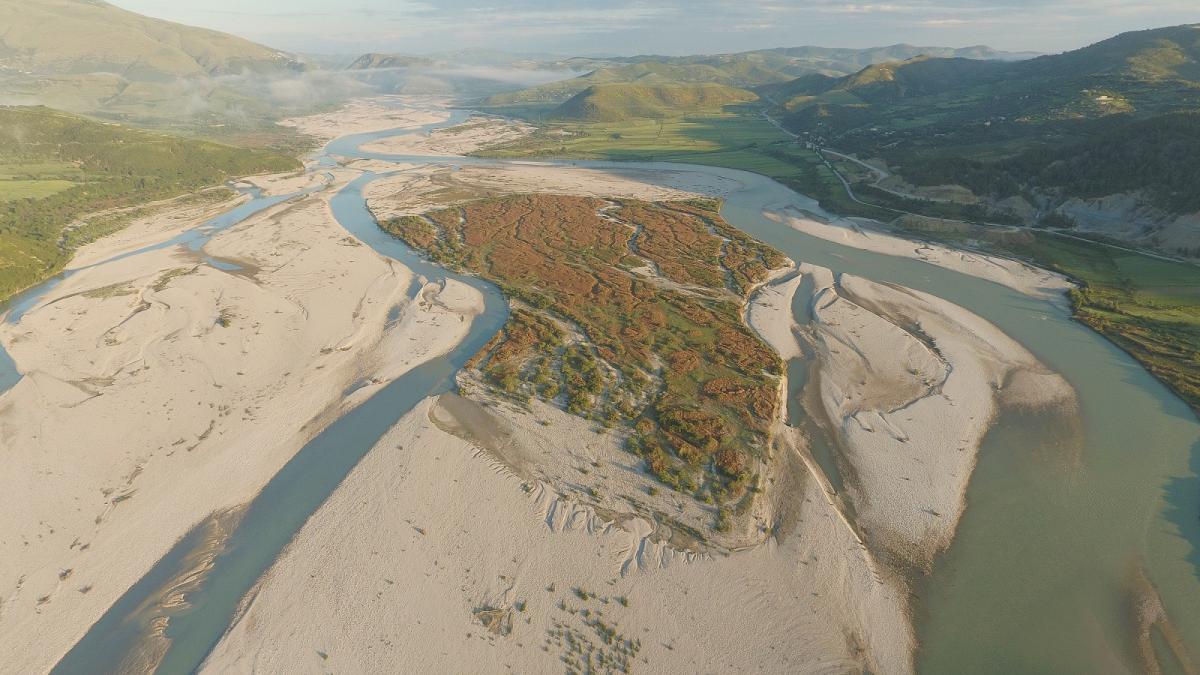TIRANA, August 20
Differently from the domestic outdated vision for hydropower projects on the Vjosa River, the United Nations Food and Agriculture Organization (FAO) highlights the need for sustainable management and development in and around the river of international importance. Given the status of Vjosa as one of the rare remaining natural flow regimes in Europe, FAO highlights the need for new management approaches with a focus on sustainability when it comes to natural resources.
According to a recent publication, FAO started a new project for the effective and improved management of Vjosa Valley’s natural resources, which will support farmers and authorities through sustainable development in the green economy and help achieve the Sustainable Development Goal (SDG) 15 (life on land) and SDG 13 (climate action).
Moreover, the project that is financed by the SDG Acceleration Fund with contributions by the Government of Norway will support agro-tourism and sustainable production and consumption in target areas.
Therefore, traditional local, organic, and geographical indications products will be identified and promoted through Climate-smart agriculture and Integrated Pest Management interventions, depending on the pandemic situation in Albania.
“Besides the above-mentioned activities, FAO will also collaborate with other United Nations agencies, under the lead of the United Nations Development Programme,” said Raimund Jehle, FAO Representative in Albania. “These will support the environment and climate-friendly initiatives in agrobiodiversity and rural tourism in Vjosa Valley-Zagori, among others, through knowledge sharing with similar successful initiatives implemented from other areas of Albania.”
Stances on HHP Projects on Vjosa River
Vjosa, also considered the Blue Heart of Europe runs free along its 270km and all its tributary rivers also run free, thus creating a unique water network in the entire continent. However, attempts for HPP projects (Pocem and Kalivac) pose a threat to the River. The projects have been opposed by local communities and by international scientists. The Bern Convention Standing Committee decided in December 2019 to keep the case against the Albanian government regarding the projected Pocem and Kalivac hydropower plants (HPP) on the Vjosa River open.
The case of Vjosa also got international attention when actor Leonardo DiCaprio raised his voice for the river on social media.
In the meantime, researchers in one of the most comprehensive studies of this kind on a river in the Mediterranean region were able to predict the consequences on energy production, ecosystems, and the Adriatic coast, if the sediments would be held back behind the planned Kalivac and Pocem dam walls. According to the survey, the Kalivac dam would trap five million tons of river sediments annually. This amount equals a queue of trucks from Tirana to London (250,000 trucks).

Further on, the HPPs would lower the level of underground water and drastic erosion of the Adriatic beaches near Vjosa’s mouth.
Read also: What About Climate Change Action in Albania?
Promoting Sustainable Tourism in Karaburun-Sazan Marine Park
Sustainable Tourism Opportunities in Lake Ohrid Region
Rural Tourism and Sustainable Development in the Albanian Alps
Fisheries in Kukes, Investing for a Sustainable Economy
Source: FAO

Leave a Reply
You must be logged in to post a comment.